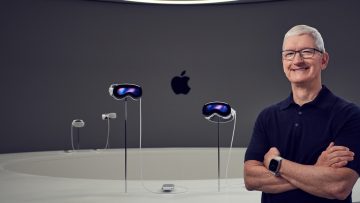Let’s say you’ve just obtained a shiny new computer science degree and you’re looking to land a job at a big tech company like Google. Do you have what it takes? Contrary to popular belief, there’s not some magic formula for getting a job at Google and a lot of it actually boils down to luck — after all, the company is flooded with job applications every year for a limited number of positions, so just getting your resume noticed in the first place is an achievement all by itself. Some Googlers recently took to Quora to answer the question of what sets engineers at their company apart from engineers at other companies and they offered some illuminating tips for what it takes to get hired by Google.
MUST READ: America’s gift to the UK this holiday season: Comcast
Google staff engineer Bruce R. Miller reveals that just getting your foot in the door might be the biggest obstacle to landing a job at the company since its human resources department is overwhelmed by prospective candidates all the time. Beyond this, here’s what he says the company looks for in prospective recruits:
Google doesn’t really care what your GPA is. It’s not a good predictor of performance at Google. Maybe you have a high GPA because you are good at regurgitating facts on tests, or maybe you have a high GPA because you are brilliant and it all comes naturally to you. […]
That being said, when Google gets an application from someone with no real experience, GPA is the only thing they have to go on, because hey, at least they worked hard at it. The high GPA are more of a target-rich environment. If you have no other evidence of your qualifications, you’re pretty much going to have to have a pretty high GPA. I think that about four years of intense experience is enough to knock the GPA out of consideration. […]
In lieu of a high GPA, I suspect (I don’t know for sure), that Google would want to see at least four years of experience in something interesting. Research papers in topics of interest to Google are also good. I, personally, like to see someone who works on some computer project that they are passionate about outside of work. To me, that is the strongest signal there is, but I can’t claim that the recruiters would agree. I don’t know.
To sum up: It sounds like unless you’re an academic superstar, you’re better off doing something else and making a name for yourself elsewhere before applying to Google. Google won’t hold mediocre grades in college against you, but if that’s the only thing they have to go on they’ll overlook you for someone else.
Google employee Ian Lance Taylor, meanwhile, lists three traits that he sees as common among Google engineers and are important to their success within the company:
- They love coding. If they weren’t paid to write programs, it would be their hobby. If you don’t love programming, you can’t fake it. It’s not something you can learn.
- They are interested in how things work at all levels of the computing stack. These days computers are too complex for anybody to deeply understand all the details at every level, but the best programmers are interested in all aspects and happy to dig into the details whenever it matters. Your garbage collection lecture may well have been deadly boring, but garbage collection is a fascinating subject.
- They are well organized, often to the point of being pedantic. Modern computer programs are big systems. Even quick hacks require a precise attention to detail in order to be useful and effective.
Beyond these traits, he says that experience working in open-source software projects is a definite plus, as are having a high GPA and a demonstrated ability to code.
And finally, Googler Navid Azimi says that Google normally gets its first pick of prospective software engineers because it’s generally seen as the most desirable place for young engineers to work, followed by Apple, Facebook, Microsoft and lastly Amazon. Because of this, he says that the “interview process in Google is highly biased towards eliminating false positives at the cost of much higher rate of false negatives.”
Check out the full Quora thread of what Googlers say it takes to land a job at their company at this link.










